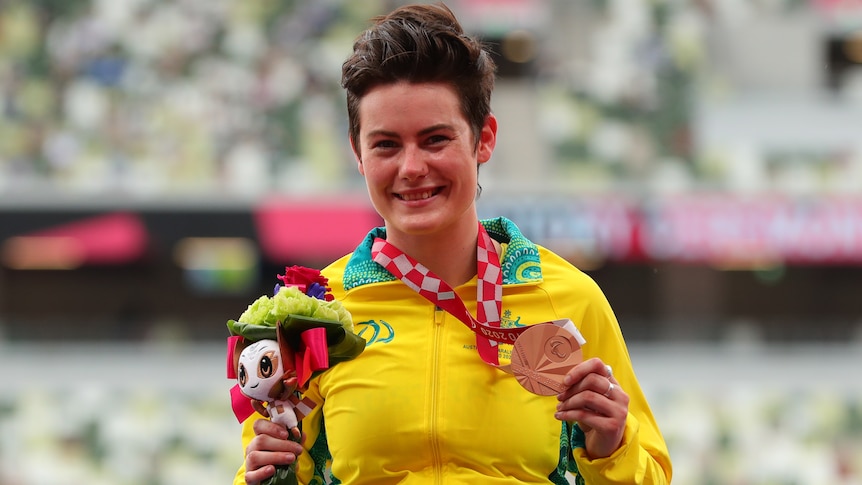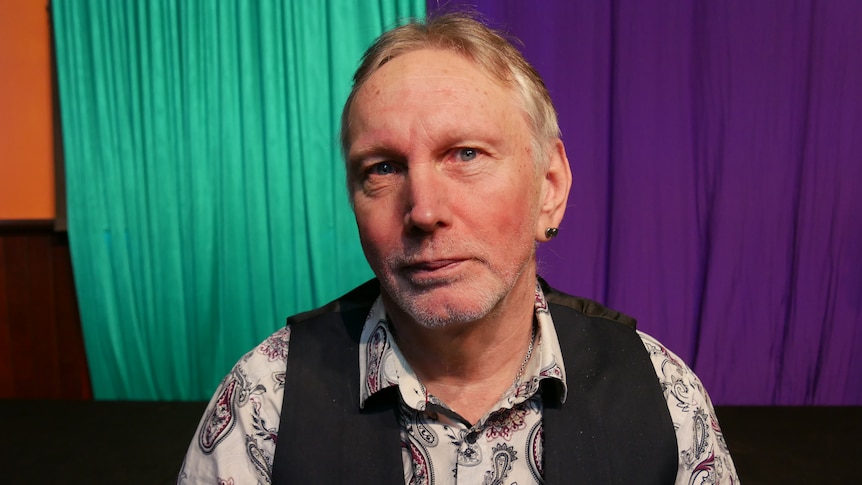Born with no legs and the use of only his right arm, Steve Lyons relies on his skateboard to get around.
“I switched from prosthetic legs, which I’d used from the age of five, to a skateboard at the age of 16 and have used a skateboard ever since,” Mr Lyons said.
“I’m now 47 and using my shoulder as a hip for all that time [using a manual skateboard] means that it doesn’t work anymore.”
He now has an electric skateboard, which he said gave him autonomy on a whole new level.
“It’s the holy grail of living with disability — you want that autonomy and being able to do what you want, it’s above independence.”
Prior to the electric skateboard, Mr Lyons said he would have to find a disabled park close to the shopping center so he could get out, move around and get back with relative ease.
“With this thing, I can park anywhere I want where there’s a reasonable parking space and I can go and do what I need to do.” he said.
“I can go from one end of the CBD to another without any problems.”
But despite ordering the electric skateboard through his NDIS funding, it is illegal for Mr Lyons to use it where he lives in Port Macquarie on the NSW Mid North Coast.
“I know there are a lot of people with physical disabilities who use [electric] skateboards or scooters because they prefer them over wheelchairs, but at the moment anyone that’s using one of those as a mobility aid is breaking the law,” he said.
In most Australian states — except Queensland, the ACT and the Northern Territory — electric skateboards and electric scooters are illegal to use on public roads, footpaths and public recreational areas.
In NSW, the state government is running a trial in some council areas to allow electric scooters (e-scooters) to be used on designated bike paths and bike lanes with speed restrictions and a minimum age limit of 16 and safety requirements in place.
But Mr Lyons said he was concerned the trial did not consider all electric personal mobility devices (PMDs), including skateboards, or reference their use by people with disabilities.
Steve Lyons has approached his local state MP Leslie Williams about getting electric PMDs, including skateboards, classed as mobility aids for people with a medical condition or disability.
A spokesperson for Ms Williams said she would not comment on individual correspondence, but the ABC understands the MP has been advocating for the devices to be legally recognized as mobility aids for those who need them and that she has met with NSW Minister for Active Transport Rob Stokes to discuss the issue.
Transport for NSW told the ABC that it would review “a range of regulations, including the use of e-mobility as medical aids” as the trial progresses.
“We will seek to engage with the community, including people with disabilities, and continue to listen to feedback throughout the trial as they continue to explore the future of e-scooters and e-mobility in the state,” a spokesperson said in a statement .
“In response to a request from Minister Stokes, Transport for NSW will review the potential to include e-mobility devices as medical aids to offer greater and safer choices for people with a disability. This will be completed in the coming months.”
Mr Lyons said he wanted it “put in legislation so that in certain circumstances these vehicles are seen as mobility aids the same as an electric wheelchair”.
“Disability and inclusiveness is always tacked on at the end,” he said.
“By having the trials and not including accessible usages for the technology you are doing it again.”
Mr Lyons said he would love for Port Macquarie to adopt the e-trials and see what sort of ability and accessibility needs these vehicles could fill.
A spokesperson for Port Macquarie Hastings Council (PMHC) told the ABC in a statement that the PMHC does not plan to participate in the current e-scooter trial.
“While we are certainly interested in the idea of promoting more accessible transport options such as e-scooters in the community, we believe further work is required to improve safety and accessibility of infrastructure for the appropriate use of e-scooters across our region,” the PMHC spokesperson said.
.


